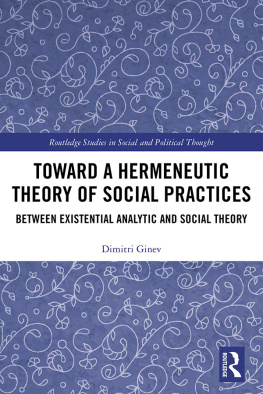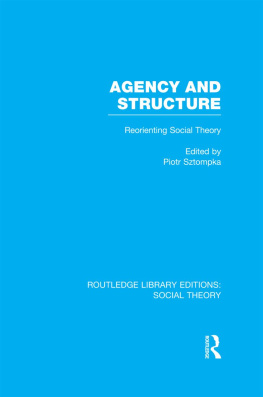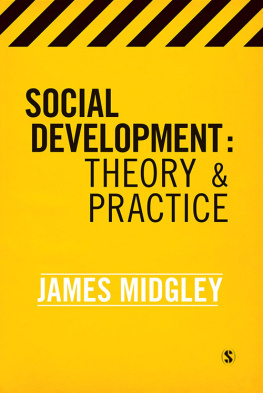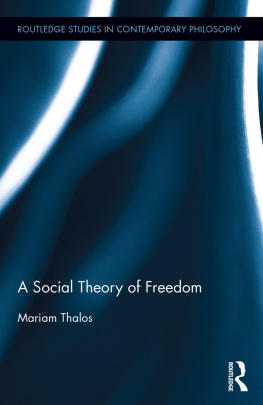Toward a Hermeneutic Theory of Social Practices
Recent methodological debates have shown that practice theory can either be developed by combining and slightly extending established theoretical concepts of inter-subjectivity, social normativity, collective behavior, interaction between agents and environment, habits, learning, collective intentionality, and human agency; or by following a strategy that promotes the quest for completely autonomous concepts. In the latter case, one defends a thesis of irreducibility.
Toward a Hermeneutic Theory of Social Practices advocates this thesis by approaching the interrelational dynamic of social practices in terms of existential analytic. Indeed, this insightful volume outlines a methodology of the double hermeneutics that allows the study of the entanglement of agential plans, beliefs, and intentions with configured practices, while also demonstrating how interrelated social practices with which agency is entangled articulate cultural forms of life.
Suggesting a framework for studying the cultural forms of life within the scope of practice theory, this book will appeal to postgraduate students and postdoctoral researchers interested in fields such as Social Theory, Philosophy of Social Science, and Research Methods for Social and Behavioral Sciences.
Dimitri Ginev is Professor for Continental Philosophy and Hermeneutic Philosophy of Culture at the University of Sofia, Bulgaria.
Routledge Studies in Social and Political Thought
For a full list of titles in this series, please visit www.routledge.com/series/RSSPT
Theories of the Stranger
Debates on Cosmopolitanism, Identity and Cross-Cultural Encounters
Vince Marotta
Planet Utopia
Utopia, Dystopia, and Globalisation
Mark Featherstone
Deciphering Goffman
The structure of his sociological theory revisited
Ramn Vargas Maseda
The Property-Owning Democracy
Freedom and Capitalism in the Twenty-First Century
Gavin Kerr
Weber, Schumpeter and Modern Capitalism
Towards a General Theory
John Love
The Cultural Contradictions of Anti-Capitalism
The Liberal Spirit and the Making of Western Radicalism
Daniel Fletcher
Peter Berger on Modernization and Modernity
An Unvarnished Overview
Robert Bickel
Imaginaries of Modernity
Politics, Cultures, Tensions
John Rundell
Complexity, Society and Social Transactions
Developing a Comprehensive Social Theory
Thomas Whalen
Critical Theories and the Budapest School
Politics, Culture, Modernity
Edited by John Rundell and Jonathan Pickle
Social and Political Life in the Era of Digital Media
Higher Diversities
David Toews
Toward a Hermeneutic Theory of Social Practices
Between Existential Analytic and Social Theory
Dimitri Ginev
First published 2018
by Routledge
2 Park Square, Milton Park, Abingdon, Oxon OX14 4RN
and by Routledge
711 Third Avenue, New York, NY 10017
Routledge is an imprint of the Taylor & Francis Group, an informa business
2018 Dimitri Ginev
The right of Dimitri Ginev to be identified as author of this work has been asserted by him in accordance with sections 77 and 78 of the Copyright, Designs and Patents Act 1988.
All rights reserved. No part of this book may be reprinted or reproduced or utilized in any form or by any electronic, mechanical, or other means, now known or hereafter invented, including photocopying and recording, or in any information storage or retrieval system, without permission in writing from the publishers.
Trademark notice: Product or corporate names may be trademarks or registered trademarks, and are used only for identification and explanation without intent to infringe.
British Library Cataloguing in Publication Data
A catalogue record for this book is available from the British Library
Library of Congress Cataloging in Publication Data
A catalog record for this book has been requested
ISBN: 978-1-138-05233-8 (hbk)
ISBN: 978-1-315-16777-0 (ebk)
Typeset in Times New Roman
by Wearset Ltd, Boldon, Tyne and Wear
Preface
In the course of dealing with various issues of the hermeneutic-phenomenological theory of culture in the last three decades, it has become a firm conviction of mine that the program of existential analytic developed in Being and Time can be reconstructed as a program composed by several theories with empirical and semi-empirical character. Needless to say that my positivistic conviction is at odds not only with the doctrines of Heideggerian orthodoxy, but also with the way in which existential analytic has been constructed so that it can be protected against any attempt of its reformulation in terms of a quasi-scientific (anthropological, socio-psychological, ethological, etc.) program. The protective mechanism can be schematically depicted as follows.
One should attribute an ontic mode of being to all entities which are identifiable by performing epistemic procedures. Let me cite four examples. (1) Deriving a theorem within an axiomatic system by implementing a derivation rule allows one to identify a certain mathematical entity. (2) Performing an experiment that under laboratory conditions verifies a prediction made within a theoretical scenario identifies a physically existing event. (3) The proper reading and contextualizing of a historical document conveys a message about entities that have been existing. (4) Procedurally depicting rhetorical tools for expressing feelings is a step in identifying a literary work in its generic specificity. Heideggers existential analytic admits that there is a mode of being that eludes any kind of identification by means of (objectifying or non-objectifying) epistemic procedures. The presumption behind this view is that all epistemic procedures take place within practices and contexts of human existence, but the latter as a mode of being remains unfathomable to any procedure of positive (ontic) identification. The ontological mode of being that is, the mode of being-toward-death is only amenable to a hermeneutic analysis that reveals the basic phenomena of human existence. Hermeneutic phenomenology is the method which can capture what eludes and withdraws from any epistemic procedure. Accordingly, hermeneutic phenomenology promises an ontology of what the procedural conceptualizations of the ontic modes of being indispensably presuppose, but are unable to thematize. Moreover, they presuppose this unfathomable entity in a twofold manner: On the one hand, it is a presupposition of the strategy of conceptualization, and on the other, it is a hidden dimension of what becomes conceptualized.
Against the background of these considerations, the protective mechanism I mentioned is implied by the famous ontic-ontological difference. Since the latter is a dichotomous difference, it also provides a decisive argument for the incompatibility between (any kind of) scientific conceptualization and the analytic launched by hermeneutic phenomenology. My positivistic reading of existential analytic led me, over the years, to the idea that this argument can be turned around: The ontic-ontological difference should be integrated within scientific theories whereby it will be transformed into a non-dichotomous difference that ought to be instrumental in the constitution of the theories objects of inquiry. It is in this way that existential analytic becomes reconstructed within empirical research programs. Yet the integration of the ontic-ontological difference within scientific theorizing has a dramatic impact on what should be counted as an empirical basis of conceptualization. Scientificated existential analytic constitutes empirical objects of inquiry that cannot be recast in terms of structurally invariant manifolds of discrete facts. The empirical can no longer be seen as a static presence waiting to be conceptualized. In the present study, the expression the interrelatedness of social practices stands for existing within the work-world in which actors are humans and various kinds of nonhumans. The hermeneutic theory of practices is built around several non-dichotomous differences that resonate and revise the ontic-ontological difference of existential analytic. It is these differences through which the interrelatedness of practices becomes constituted as an immanently interpretive empirical object of inquiry.







![Tony Wilson [Tony Wilson] - Consumption, Psychology and Practice Theories](/uploads/posts/book/124059/thumbs/tony-wilson-tony-wilson-consumption-psychology.jpg)

